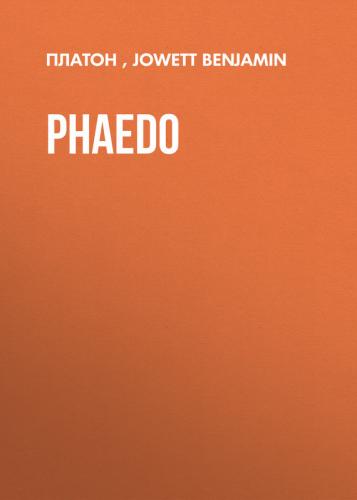8. Another life must be described, if at all, in forms of thought and not of sense. To draw pictures of heaven and hell, whether in the language of Scripture or any other, adds nothing to our real knowledge, but may perhaps disguise our ignorance. The truest conception which we can form of a future life is a state of progress or education – a progress from evil to good, from ignorance to knowledge. To this we are led by the analogy of the present life, in which we see different races and nations of men, and different men and women of the same nation, in various states or stages of cultivation; some more and some less developed, and all of them capable of improvement under favourable circumstances. There are punishments too of children when they are growing up inflicted by their parents, of elder offenders which are imposed by the law of the land, of all men at all times of life, which are attached by the laws of nature to the performance of certain actions. All these punishments are really educational; that is to say, they are not intended to retaliate on the offender, but to teach him a lesson. Also there is an element of chance in them, which is another name for our ignorance of the laws of nature. There is evil too inseparable from good (compare Lysis); not always punished here, as good is not always rewarded. It is capable of being indefinitely diminished; and as knowledge increases, the element of chance may more and more disappear.
For we do not argue merely from the analogy of the present state of this world to another, but from the analogy of a probable future to which we are tending. The greatest changes of which we have had experience as yet are due to our increasing knowledge of history and of nature. They have been produced by a few minds appearing in three or four favoured nations, in a comparatively short period of time. May we be allowed to imagine the minds of men everywhere working together during many ages for the completion of our knowledge? May not the science of physiology transform the world? Again, the majority of mankind have really experienced some moral improvement; almost every one feels that he has tendencies to good, and is capable of becoming better. And these germs of good are often found to be developed by new circumstances, like stunted trees when transplanted to a better soil. The differences between the savage and the civilized man, or between the civilized man in old and new countries, may be indefinitely increased. The first difference is the effect of a few thousand, the second of a few hundred years. We congratulate ourselves that slavery has become industry; that law and constitutional government have superseded despotism and violence; that an ethical religion has taken the place of Fetichism. There may yet come a time when the many may be as well off as the few; when no one will be weighed down by excessive toil; when the necessity of providing for the body will not interfere with mental improvement; when the physical frame may be strengthened and developed; and the religion of all men may become a reasonable service.
Nothing therefore, either in the present state of man or in the tendencies of the future, as far as we can entertain conjecture of them, would lead us to suppose that God governs us vindictively in this world, and therefore we have no reason to infer that he will govern us vindictively in another. The true argument from analogy is not, 'This life is a mixed state of justice and injustice, of great waste, of sudden casualties, of disproportionate punishments, and therefore the like inconsistencies, irregularities, injustices are to be expected in another;' but 'This life is subject to law, and is in a state of progress, and therefore law and progress may be believed to be the governing principles of another.' All the analogies of this world would be against unmeaning punishments inflicted a hundred or a thousand years after an offence had been committed. Suffering there might be as a part of education, but not hopeless or protracted; as there might be a retrogression of individuals or of bodies of men, yet not such as to interfere with a plan for the improvement of the whole (compare Laws.)
9. But some one will say: That we cannot reason from the seen to the unseen, and that we are creating another world after the image of this, just as men in former ages have created gods in their own likeness. And we, like the companions of Socrates, may feel discouraged at hearing our favourite 'argument from analogy' thus summarily disposed of. Like himself, too, we may adduce other arguments in which he seems to have anticipated us, though he expresses them in different language. For we feel that the soul partakes of the ideal and invisible; and can never fall into the error of confusing the external circumstances of man with his higher self; or his origin with his nature. It is as repugnant to us as it was to him to imagine that our moral ideas are to be attributed only to cerebral forces. The value of a human soul, like the value of a man's life to himself, is inestimable, and cannot be reckoned in earthly or material things. The human being alone has the consciousness of truth and justice and love, which is the consciousness of God. And the soul becoming more conscious of these, becomes more conscious of her own immortality.
10. The last ground of our belief in immortality, and the strongest, is the perfection of the divine nature. The mere fact of the existence of God does not tend to show the continued existence of man. An evil God or an indifferent God might have had the power, but not the will, to preserve
